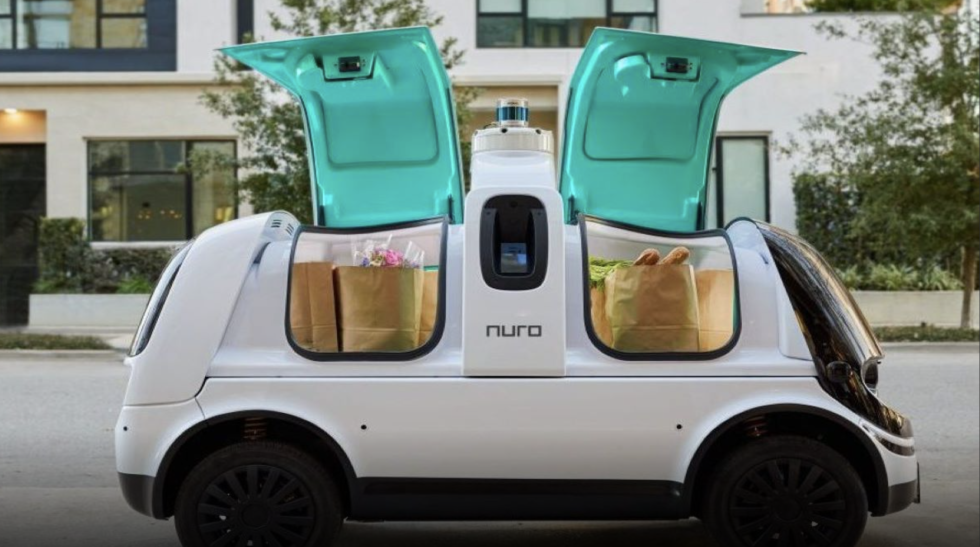Six months after laying off 20 percent of its staff, Nuro has reportedly laid off 30 percent of its remaining workforce. The autonomous delivery robot manufacturer has seen a dramatic reversal of its fortunes after landing a $600 million Series D funding round in late 2021, which gave the Bay Area-based company a stout $8.6-billion valuation.
According to Forbes, the latest Nuro layoff equates to approximately 340 employees, adding to roughly 300 people who were let go in late 2022. TechCrunch was the first to report the latest news, citing a blog post by Nuro co-founders Dave Ferguson and Jiajun Zhu.
The post was led with a mission of charting “a more capital efficient path” to realizing the company’s mission of improving everyday life through the use of robotics.
“Over the past seven years, we’ve made significant progress towards this goal,” the founders wrote. “We built a custom fleet of zero-occupant vehicles, developed state of the art AI to operate these vehicles driverless-ly on public roads, and signed nationally recognized brands as commercial partners. Each of these accomplishments marks a key step in building a scaled, autonomous delivery service.”
Pointing to changes in capital markets that have particularly impacted startups and tech companies, they said this new environment requires the company to “be more efficient” with its balance sheet.
There is a fundamental tension in the development of self driving between capital efficiency and speed to building an initial service,” they added. “We have historically invested heavily in deploying commercial services and have learned a great deal from our customers. But commercial deployments come at a significant cost, both in terms of resources and autonomy focus. And until the unit economics of these services make sense, we think it is prudent to focus on what we can do efficiently as a startup.”
Nuro’s founders said they are changing their approach to building the company. Whereas, in the past it focused on developing autonomy systems and building custom vehicles, it will now pursue a “more sequential” development model leveraging artificial intelligence and machine learning that still focuses on autonomy.
The company said it will also delay previously planned vehicle production of its third-generation vehicle, reducing the scale of near-term commercial pilots and explore what it called more efficient deployment models with partners.
Uber and Nuro announced a 10-year robotic delivery partnership in September of 2022, with a goal of beginning autonomous food deliveries in California and Texas, to-date the biggest step that any U.S.-based food delivery service has taken toward introducing unmanned deliveries at scale.
Nuro’s announcement concluded by reaffirming its vision of daily life augmented by autonomous vehicles, and its aim to continue building a local autonomous delivery market.
The founders said, “With our new approach, Nuro will not only get through this economic downturn, but we hope to emerge stronger on the other side.”


